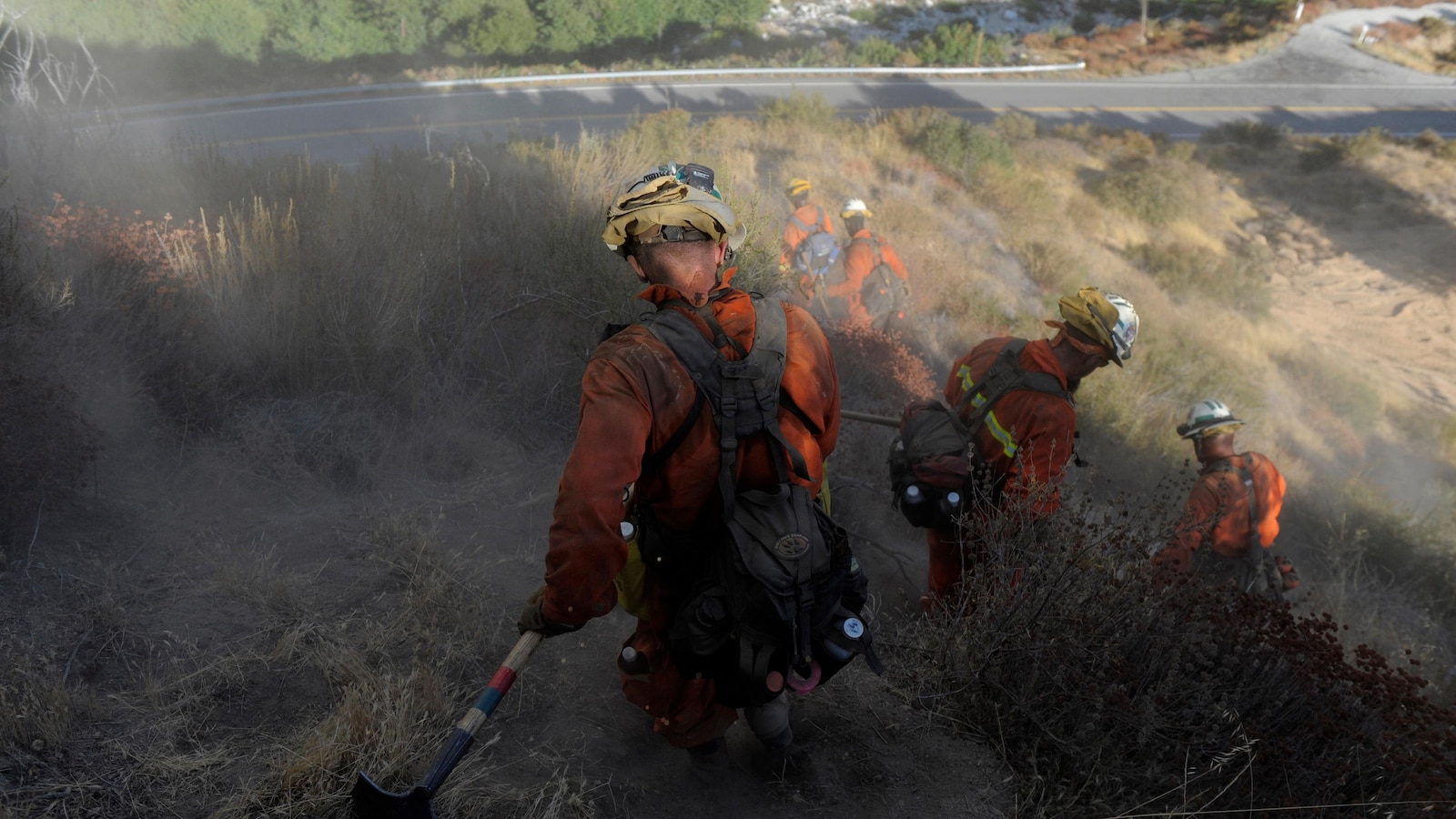
An in-depth Associated Press investigation into prison labor in the United States has found that prisoners who are injured or killed on the job are often denied the rights and protections afforded to other American workers.
These prisoners are placed in dangerous jobs, sometimes with little or no training. They clean up trash along busy highways, fight forest fires and operate heavy machinery. They work on industrial farms and meat processing plants connected to the supply chains of some of the world's most iconic brands and companies. But incarcerated workers and their families often have little or no recourse when something goes wrong.
The report on the dangers of prison labor is part of a broader AP investigation into what has become a multibillion-dollar industry that often operates with little oversight.
Here are some takeaways from the latest installment of AP's investigation:
Laws in some states spell it out clearly: Prisoners are not classified as employees, whether they work in prisons or for private companies through prison contracts or work release programs.
That could exclude them from workers' compensation benefits, along with state and federal workplace safety standards. They cannot protest the poor conditions, form unions or strike, and it is more difficult for them to file a lawsuit. Some may also be punished for refusing to work, including solitary confinement. And many work for a penny an hour – or nothing at all.
AP reporters spoke to more than a hundred current and former inmates across the country about their experiences with prison labor, along with family members of workers killed. About a quarter of them told stories of injuries or deaths, from severe burns and traumatic head wounds to severed body parts.
It is nearly impossible to know how many incarcerated workers are injured or killed each year, the AP found, partly because of privacy laws but also because prisoners often do not report injuries for fear of reprisals or losing privileges such as contact with their families .
Prisoners work in poultry factories, sawmills and in industrial plants. In many states, the law requires them to be used for hazardous jobs during disasters and emergencies, such as cleaning up hazardous materials. They are also sent to fight fires to fill critical labor shortages, including in some rural communities in Georgia, where incarcerated firefighters are paid nothing as the sole responders to everything from car wrecks to medical emergencies.
California, Nevada, Arizona and several other states also use prisoners to fight wildfires.
Prisoners who are injured on the job and decide to file a lawsuit can face nearly insurmountable obstacles, including finding an attorney willing to take the case. That's especially true after the federal Prison Litigation Reform Act was passed nearly thirty years ago to stem a flood of lawsuits that came with a growing prison population.
Michael Duff, a law professor at Saint Louis University and an expert on labor law, said an entire class of society is being denied civil rights.
“We have a category of people who can be wrongfully harmed and yet have no remedy for their harm,” he said.
Today, nearly two million people are incarcerated in the US – more than almost any country in the world – a number that began to rise in the 1980s when tougher crime laws were passed. More than 800,000 inmates have some kind of job, from serving food in facilities to working outside for private companies, including work-release assignments everywhere from Burger King to Tyson Foods' poultry plants. They also serve in state and municipal agencies, as well as colleges and nonprofit organizations.
And it's all legal: a loophole in the Thirteenth Amendment to the U.S. Constitution, passed after the Civil War made forced labor legal, abolishing slavery except “as punishment for a crime.”
Few critics believe that all prison jobs should be eliminated, but say that work should be voluntary and that prisoners should be paid fairly and treated humanely. Correctional officers and others who run work programs across the country respond that they place a heavy emphasis on training and that injuries are taken seriously. And many prisoners see work as a welcome relief from boredom and violence in their facilities.
—-
The Associated Press receives support from the Public Welfare Foundation for criminal justice-focused reporting. This story was also supported by Columbia University's Ira A. Lipman Center for Journalism and Civil and Human Rights in partnership with Arnold Ventures. The AP is solely responsible for all content.
—-
Contact AP's global investigative team at Investigative@ap.org or https://www.ap.org/tips/











